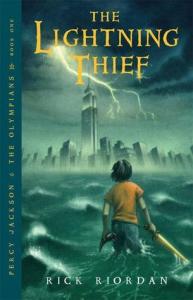“Notes of encouragement to new writers” is the theme this month at Smack Dab in the Middle, a blog by/for/about writing for middle grade students that — surprise! — has lots of great advice for writers everywhere. Sunday’s post by Chris Tebbetts makes some wonderful observations about showing up: for the work, for the community, and for ourselves.
Here are some of my favorite bits:
“In my experience, the people who make it in publishing are the ones who manage to give sufficient energy to both halves of that dichotomy [the art and the business of writing].”
“I was showing up, and showing up, and showing up, not so I could score a distinct win every time, but so that I could eventually find myself in the right place at the right time.”
“. . . persistence is everything in publishing. It’s also the one thing you can control.. . .”
Give it a read and take away whatever encourages you.
http://smack-dab-in-the-middle.blogspot.com/2019/04/showing-upand-upand-up.html


 Reading Nancy’s description of research she did at Okefenokee Swamp Park reminded me of a wonderful book I read when I was in the middle grades, Swampfire by Patricia Cecil Hass. It also reminded me of the ways in which places inspire us, both as readers and as writers. When we went up in the Gateway Arch on a family vacation to St. Louis, my children were beside themselves with excitement because that was where Percy Jackson had battled the Echidna in The Lightning Thief by Rick Riordan.
Reading Nancy’s description of research she did at Okefenokee Swamp Park reminded me of a wonderful book I read when I was in the middle grades, Swampfire by Patricia Cecil Hass. It also reminded me of the ways in which places inspire us, both as readers and as writers. When we went up in the Gateway Arch on a family vacation to St. Louis, my children were beside themselves with excitement because that was where Percy Jackson had battled the Echidna in The Lightning Thief by Rick Riordan.
 The new year brings with it new opportunities for writing, publishing, and networking. Here are a few that have shown up in the ECWG in-box:
The new year brings with it new opportunities for writing, publishing, and networking. Here are a few that have shown up in the ECWG in-box: Whether you write long or short forms, one of the trickiest things about fiction (and some non-fiction) is conveying background information. Too little information loses the reader through confusion; too much loses the reader through sidetracking (or boredom).
Whether you write long or short forms, one of the trickiest things about fiction (and some non-fiction) is conveying background information. Too little information loses the reader through confusion; too much loses the reader through sidetracking (or boredom). With Earth Day looming, it’s only fitting that Maja Todorovic of
With Earth Day looming, it’s only fitting that Maja Todorovic of